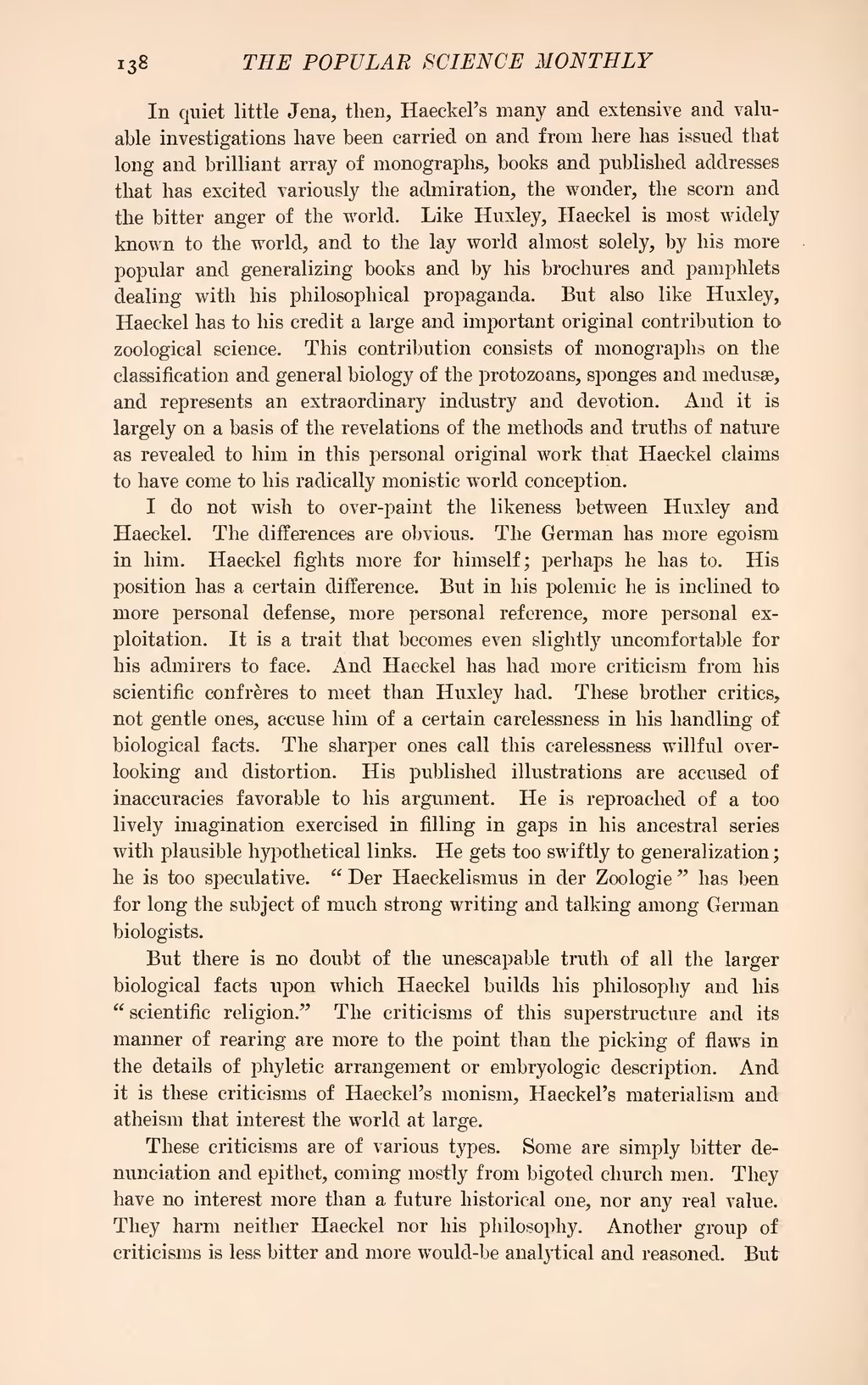In quiet little Jena, then, Haeckel's many and extensive and valuable investigations have been carried on and from here has issued that long and brilliant array of monographs, books and published addresses that has excited variously the admiration, the wonder, the scorn and the bitter anger of the world. Like Huxley, Haeckel is most widely known to the world, and to the lay world almost solely, by his more popular and generalizing books and by his brochures and pamphlets dealing with his philosophical propaganda. But also like Huxley, Haeckel has to his credit a large and important original contribution to zoological science. This contribution consists of monographs on the classification and general biology of the protozoans, sponges and medusæ, and represents an extraordinary industry and devotion. And it is largely on a basis of the revelations of the methods and truths of nature as revealed to him in this personal original work that Haeckel claims to have come to his radically monistic world conception.
I do not wish to over-paint the likeness between Huxley and Haeckel. The differences are obvious. The German has more egoism in him. Haeckel fights more for himself; perhaps he has to. His position has a certain difference. But in his polemic he is inclined to more personal defense, more personal reference, more personal exploitation. It is a trait that becomes even slightly uncomfortable for his admirers to face. And Haeckel has had more criticism from his scientific confrères to meet than Huxley had. These brother critics, not gentle ones, accuse him of a certain carelessness in his handling of biological facts. The sharper ones call this carelessness willful overlooking and distortion. His published illustrations are accused of inaccuracies favorable to his argument. He is reproached of a too lively imagination exercised in filling in gaps in his ancestral series with plausible hypothetical links. He gets too swiftly to generalization; he is too speculative. "Der Haeckelismus in der Zoologie" has been for long the subject of much strong writing and talking among German biologists.
But there is no doubt of the unescapable truth of all the larger biological facts upon which Haeckel builds his philosophy and his "scientific religion." The criticisms of this superstructure and its manner of rearing are more to the point than the picking of flaws in the details of phyletic arrangement or embryologic description. And it is these criticisms of Haeckel's monism, Haeckel's materialism and atheism that interest the world at large.
These criticisms are of various types. Some are simply bitter denunciation and epithet, coming mostly from bigoted church men. They have no interest more than a future historical one, nor any real value. They harm neither Haeckel nor his philosophy. Another group of criticisms is less bitter and more would-be analytical and reasoned. But
